Particle Physics Projects for Graduate Students
Graduate research projects offered by faculty members at the Centre for Particle Physics.
Professors at the Centre for Particle Physics offer a selection of graduate projects to exceptional graduate students. The projects fall into two main categories:
Experimental Projects |
|
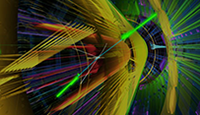 |
ATLAS at CERNWe have three professors working on ATLAS with opportunities to work on many exciting questions of accelerator physics. We study questions surrounding the production of black holes at the LHC, Higgs production in diffraction events and are involved in the search for supersymmetry with ATLAS. For details and project specifics, contact: |
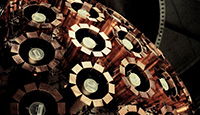 |
DEAP at SNOLABDEAP-3600 is a direct dark matter search experiment operating at SNOLAB, 2km underground. The experiment uses liquid argon to find events that are created by dark matter interactions. For details and project specifics, contact: |
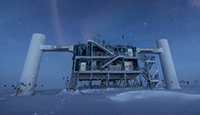 |
IceCube at the South PoleIceCube is the largest particle detector in the world using the glacial ice of the Antarctic to detect neutrinos from the atmosphere and from various galactic and extra-galactic sources. Recently IceCube has discovered first evidence for extragalactic neutrinos. The Alberta group is deeply involved in the R&D towards new IceCube extensions like PINGU. For details and project specifics, contact: |
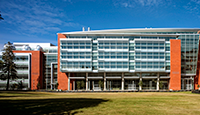 |
Low Background Counting Projects at the University of AlbertaFor all our low background physics experiments (DEAP, IceCube, PICO and SNO+) as well as future events that will be developed, such as PINGU, we have a large set of experimental setups and facilities that provide interesting projects for students with hands-on interests in hardware based work. For details and project specifics, contact: |
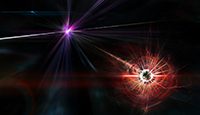 |
MoEDAL at CERNMoEDAL is a CERN based experiment that was proposed by James Pinfold and now is looking for magnetic monopole production at the LHC. For details and project specifics, contact: |
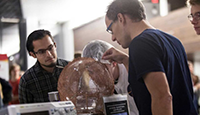 |
NEWS-G at SNOLABThe NEWS-G collaboration is developing spherical gaseous detectors or SPCs (Spherical Proportional Counters) for various particle physics applications, such as coherent elastic neutrino-nucleus scattering (CeνNS) studies, double beta decay searches, gamma-ray spectroscopy, neutron spectroscopy and, last but not least, dark matter detection. |
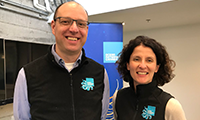 |
Pacific NeutrinosCPP members are exploring the possibility of deploying a large telescope off the coast of BC with several international partners. Exploratory work shows promise and we are now working out the details of a possible large detector using Ocean Networks Canada infrastructure. For details and project specifics, contact: |
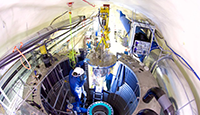 |
PICO at SNOLABDark matter can interact either coherently or through the spin it carries. Since we have no idea if dark matter particles carry spin, both types of interactions have to be studied. PICO is leading the search for spin dependent interactions with superheated C3F8. For details and project specifics, contact: |
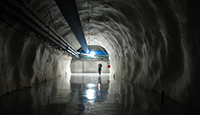 |
SBC at SNOLABThe scintillating bubble chamber (SBC) builds on the world-leading research of the PICO collaboration and is an extension of the work with xenon bubble chambers. This new detector dramatically improves on the electron recoil discrimination which will allow for reduced threshold and therefore increased sensitivity to low-mass dark matter, a current focus of the community. For details and project specifics, contact: |
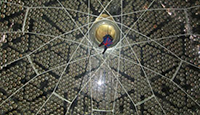 |
SNO+ at SNOLABSNO+ is a neutrino experiment located at SNOLAB. SNO+ can measure geo-neutrinos, reactor-neutrinos and will study the neutrino-less double beta decay of tellurium. This experiment builds on the great successes of the SNO experiment that discovered solar neutrino oscillations and will continue to lead neutrino physics in Canada. For details and project specifics, contact: |
Theory Projects |
|
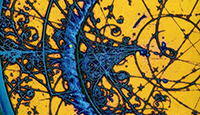 |
Theory ProjectsFor information on current research topics and possible thesis projects, contact: |